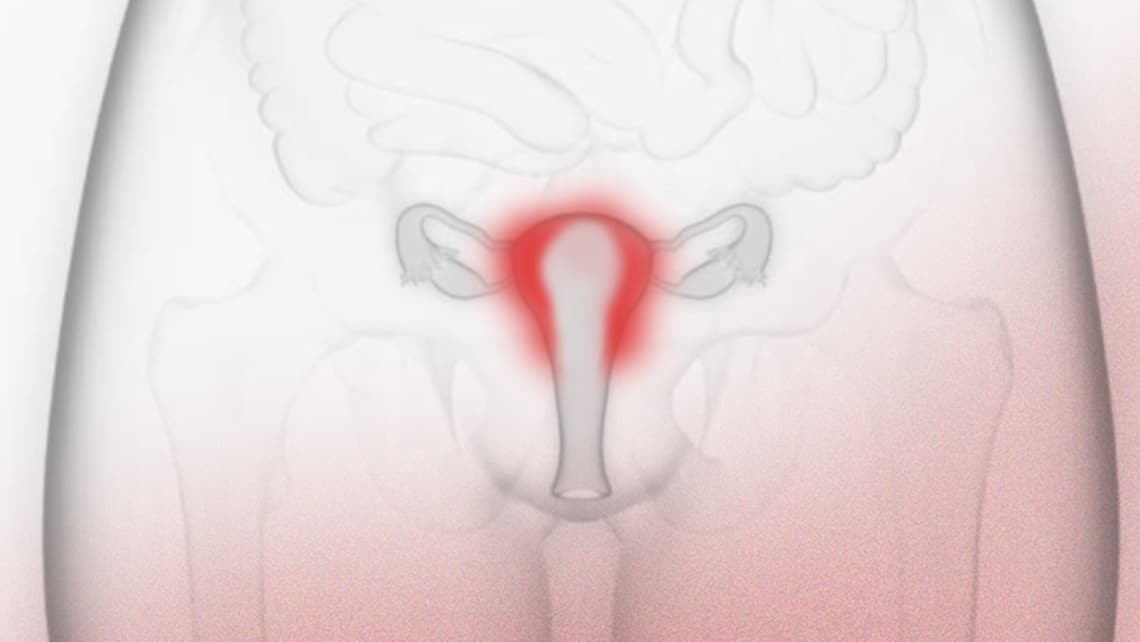
What is chronic endometritis? What is its effect in fertility?
Chronic endometritis is the name given to a continuous inflammation of the endometrium. It is a pathology that can be found in up to 10% of women, however it is known that this percentage is much higher in patients that have had recurrent embryo implantation failure and in patients who have had recurrent miscarriages (10-67%).
Índice
What symptoms may provoke chronic endometritis?
The symptoms that it can cause vary from a completely asymptomatic situation to causing chronic pelvic pain. Nonetheless, when symptomatic the most common symptom is dysfunctional uterine haemorrhaging, that is, abnormal bleeding between periods.
It is still not clear how the chronic inflammation appears in an endometrium that regenerates itself every month, however evidence points to it being due to the presence of microorganisms that live in the uterus and that, without provoking an infection, provoke this reaction in the endometrium. However, although there are already some microorganisms that are suspected of being the cause of this pathology, it is still not possible to categorically affirm which ones are the cause and in what way they can affect.
How can we diagnose chronic endometritis?
The diagnosis is confirmed thanks to the histopathology of the endometrium, meaning that it is necessary to take a biopsy of the endometrium and then analyse it. In the analysis there should be plasmatic cells, which are a type of blood cells that provoke the inflammation of tissue. A marker of these cells, CD 138, is used to distinguish them from the rest. Nonetheless, there are certain signs that may be seen in the hysteroscopy that could alert to this pathology as well, such as the presence of micro polyps.
What is the chronic endometritis treatment?
The fact that antibiotics have proven to be an effective solution reinforces the theory that chronic endometritis is caused by the presence of microorganisms.
With regards to Reproductive Medicine, the most interesting aspect is the effect that it can have on our treatments. This chronic inflammation causes immunological changes and prevents the necessary change in the endometrium from being produced during the implantation window, therefore meaning that the endometrium has altered receptivity. Although it is unknown whether this pathology could be the cause of implantation failure or miscarriages, it is clear that once the chronic endometritis has been cured the patients’ prognosis improves for a new pregnancy.
Given the importance that it has in assisted reproductive treatments, the presence of this pathology should be checked in all patients with repetitive implantation failure or recurrent miscarriages, either via an endometrial biopsy performed during a hysteroscopy or via an endometrial biopsy carried out in the consultation room. If it is found, antibiotic treatment during 14 days will be required. Although this treatment is highly effective (more than 90% of cases are cured), there is no consensus on whether a second biopsy is needed or not to confirm if the treatment has worked, therefore it is bet to individualize the situation in each case.
IT MAY ALSO BE OF INTEREST TO YOU
- Endometriosis Unit
- Implantation failure and recurrent miscarriage Unit
- Endoscopic surgery
- Endometritis: What is it? How can it be detected? How can it be cured?
- Diagnostic hysteroscopy and endometrial scratching
Dr Belen Moliner, gynaecologist of Instituto Bernabeu
